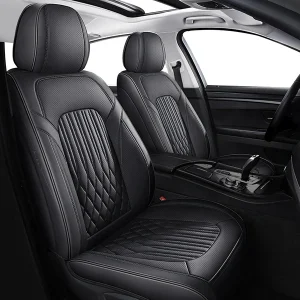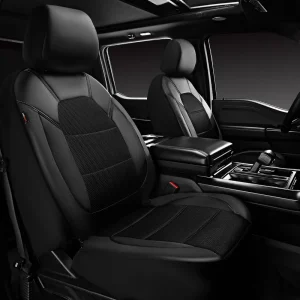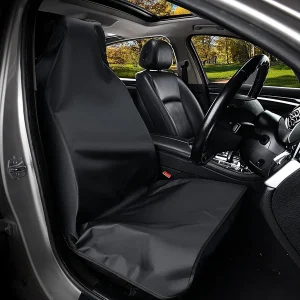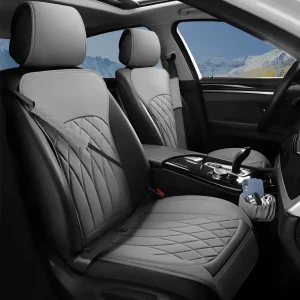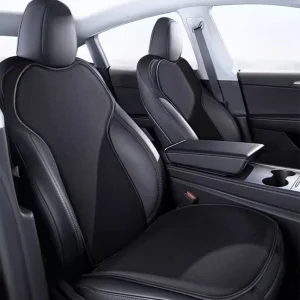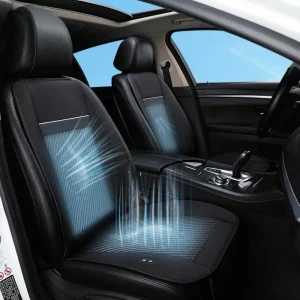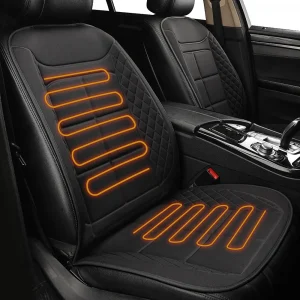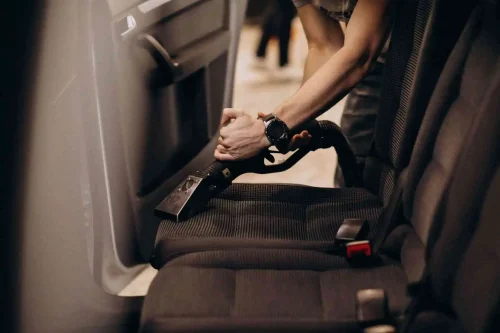Upgrading your truck’s interior with leather seat covers is more than just an aesthetic decision—it’s about comfort, durability, and practicality. But with so many options, how do you know which material, fit, or brand is right for you?
This guide will walk you through the key factors to consider when selecting leather seat covers for trucks, including material types, usage scenarios, fitment styles, and value-based recommendations.
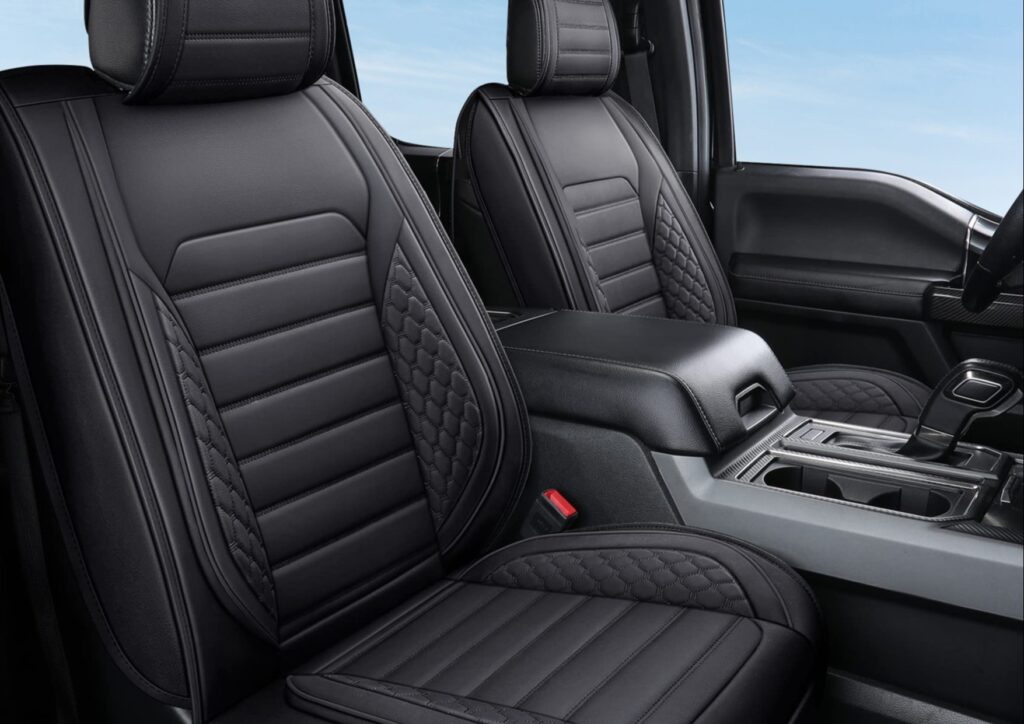
Why Choose Leather Seat Covers for Trucks?
Tough Jobs Require Tough Materials
Trucks often face demanding environments—construction sites, off-road trails, long-distance drives, and extreme weather. Your seats need protection from:
- Mud, dust, and moisture
- Tools and gear
- Daily wear and tear
- Sun exposure and heat
Leather seat covers, especially custom leather seat covers, offer a layer of defense while adding a premium look.
Benefits of Leather Seat Covers
- Durability: Resists cracking, fading, and tearing better than cloth
- Easy Maintenance: Wipe down spills or dirt
- Enhanced Comfort: Especially with high-end options like Nappa leather
- Resale Boost: Maintains a cleaner, more attractive interior for years
Know Your Truck and Usage Needs
Before buying, consider how and where your truck is used. The right seat covers for trucks leather should match your lifestyle:
- Work Trucks: Look for genuine leather or reinforced faux leather with waterproof backing
- Off-Road Vehicles: Choose easy-to-clean materials that resist mud and abrasion
- Daily Drivers: Prioritize comfort and breathability, such as Nappaor perforated leather
- Family or Pet Use: Look for scratch-resistant surfaces and easy-install options
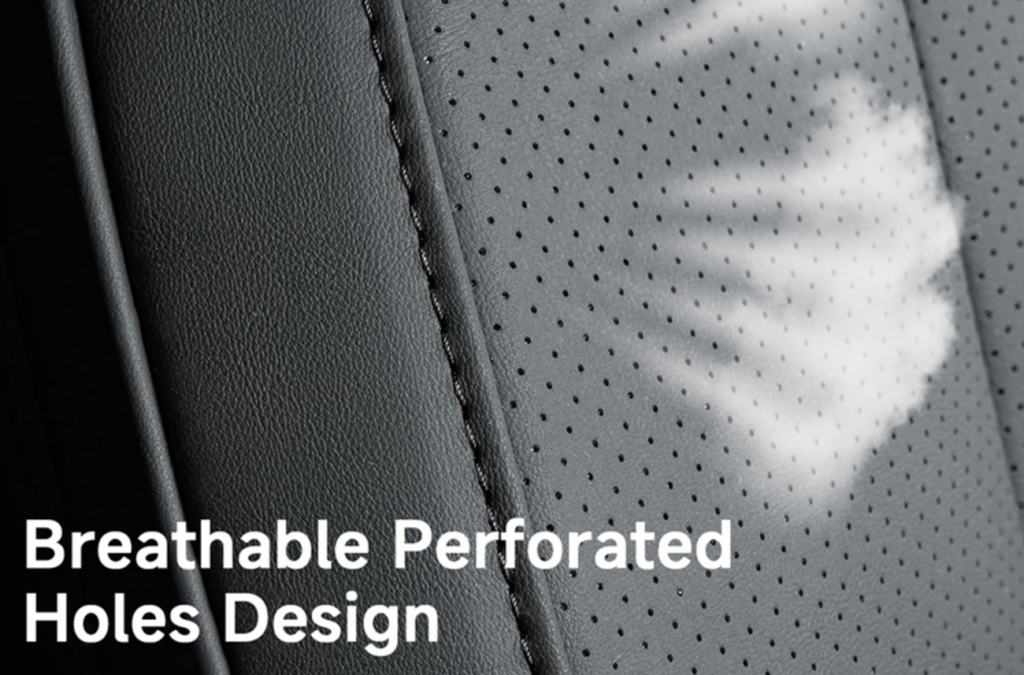
Leather Seat Cover Material Breakdown
1. Faux Leather (PU)
Faux leather is popular for those looking to save money without sacrificing style. It’s waterproof, easy to clean, and looks out of the box. However, it doesn’t breathe well and may start to crack if exposed to heat or heavy use over time.
Ideal for: Short-term use or budget-conscious truck owners who want something simple and functional.
2. Nappa Leather
If comfort is your priority, Nappa leather is hard to beat. It’s ultra-soft and breathable and adds a luxurious feel to your truck interior. It comes with a higher price tag and needs occasional care to keep it looking its best.
Ideal for: Daily drivers and long-distance travelers who want a premium, comfortable ride.
3. Genuine Leather
Genuine leather offers the best of both worlds—tough, long-lasting, and naturally stylish. It handles wear and tear exceptionally well, making it an excellent investment for anyone keeping their truck long-term. Just be ready to condition it now and then.
Ideal for: Truck owners who want durability, a classic look, and added resale value.
4. Suede (for accents or partial coverage)
The Suede adds a sporty and upscale look with a soft, anti-slip surface that feels great to the touch. However, it’s not the easiest to maintain—it can stain and doesn’t handle moisture well.
It is ideal for Decorative accents like seat sides or headrests rather than full seat coverage.
Material Comparison
Faux leather is affordable, easy to clean, and water-resistant, but it’s less breathable and can crack over time. It’s a practical choice for short-term or budget-conscious users.
Nappa leather offers excellent comfort and a soft, luxurious feel. While it’s more expensive and needs occasional care, it’s ideal for drivers who value style and comfort.
Genuine leather is the most durable option, combining toughness with a premium look. It handles daily wear well but comes more expensive and needs regular maintenance to stay in top shape.
Suede adds a stylish, sporty touch and feels soft to the touch. However, it’s harder to clean and not waterproof, making it better suited for accents rather than full seat coverage.
Fit and Compatibility Matter
Why Universal Covers Fall Short
Generic seat covers often fail to protect all angles or allow access to built-in features like:
- Seat airbags
- Armrests and folding seats
- Integrated seat belts
For this reason, custom leather seat covers—especially those designed for your specific truck model, like Ford 150 seat covers—are the best option.
Benefits of Custom Fit:
- Exact seat shape coverage
- Built-in headrest, airbag, and control compatibility
- No sliding, bunching, or gaps
- Better visual integration with interior
Key Features to Look For
- Water Resistance: Essential for outdoor or job site use
- UV Protection: Prevents color fading and leather cracking
- Perforation or Ventilation: Helps in hot climates or heated seat systems
- Easy Installation: Some brands offer clip-on systems or elastic straps—no tools required
- Customization Options: Choose colors, stitching, and logos to match your taste
Trusted Options: Covers4Car Example
One brand known for tailored solutions is Covers4Car, offering:
- Custom-fit leather seat covers for trucks, including Ford F-Series, RAM, Chevy Silverado, and Toyota trucks
- Material choices: PU, genuine leather, Nappa, and suede trims
- DIY-friendly installation
- Optional embroidery, accent stitching, and two-tone designs
Their Ford 150 seat covers are a customer favorite for balancing ruggedness and premium design.
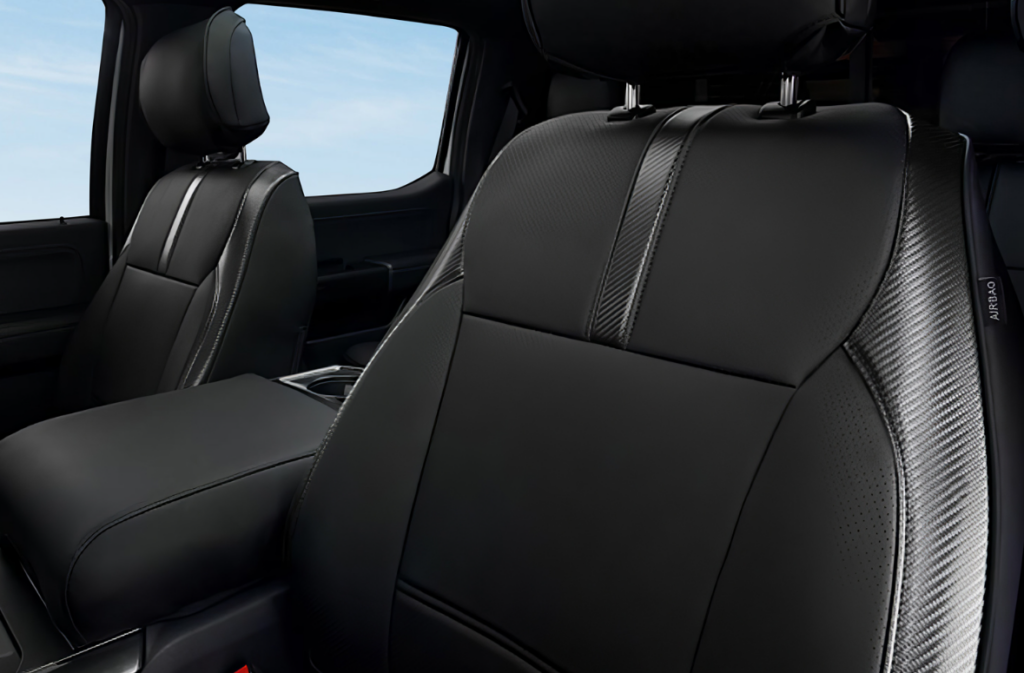
Frequently Asked Questions
Will leather seat covers work with heated seats?
Yes, but check for perforated leather options. Many custom models support heated and ventilated functions.
How long do faux leather seat covers last?
Typically, it is 5–7 years under regular use, but it can wear faster in high-heat or off-road conditions.
Final Thoughts: Choose Smart, Not Just Stylish
Choosing the right leather seat covers for your truck isn’t just about making it look good—it’s about matching them to how you use it. Whether upgrading a new Ford F-150, protecting a hardworking job-site truck, or making your everyday drive more comfortable, the right material and fit can make a big difference.
Pick custom leather seat covers that fit your lifestyle—not just your seats.

